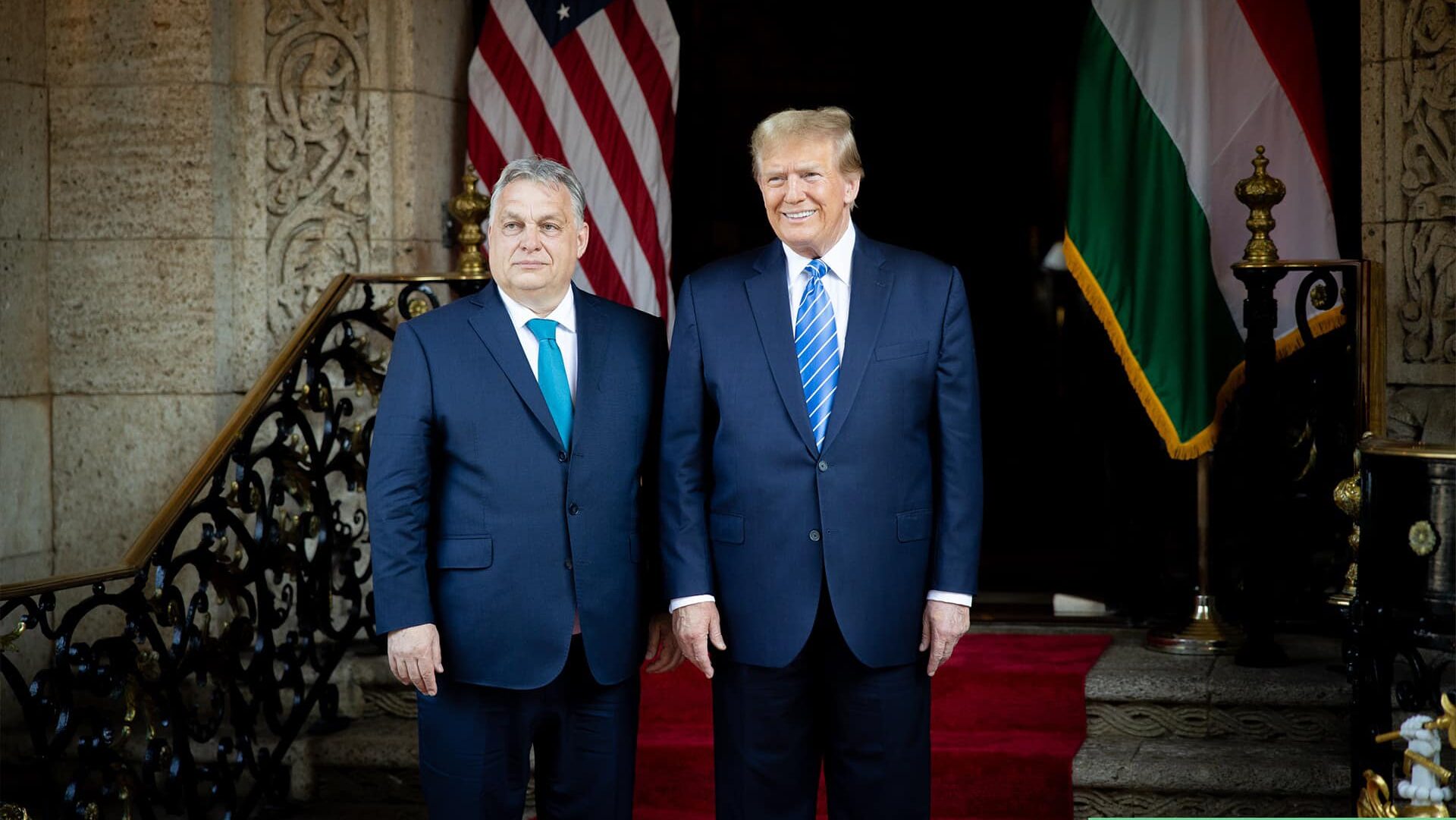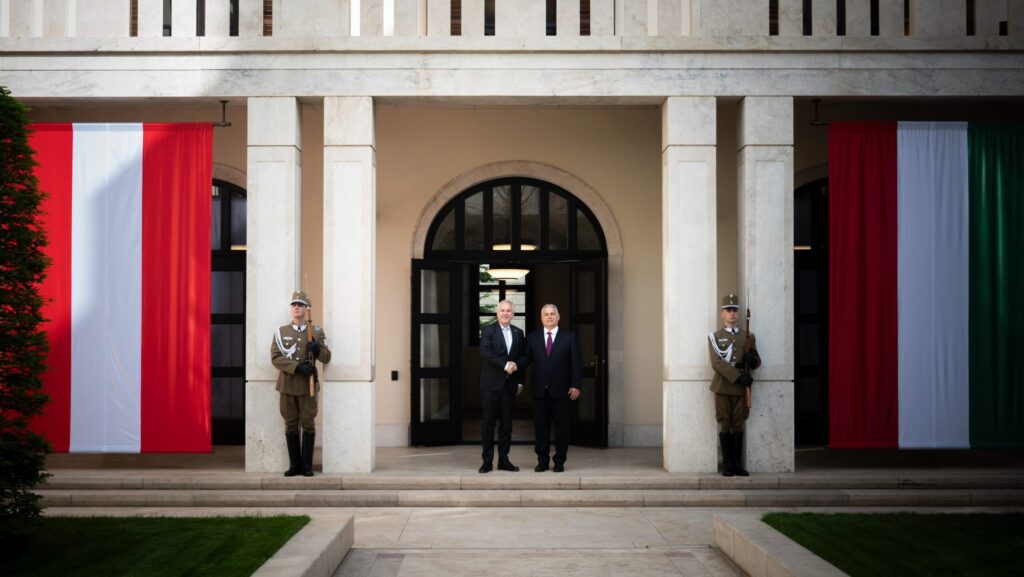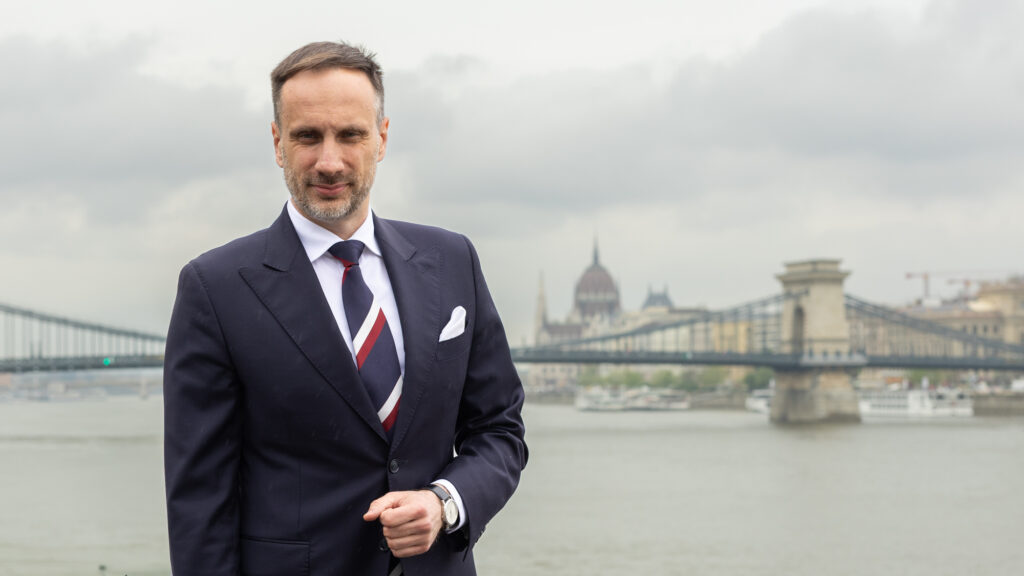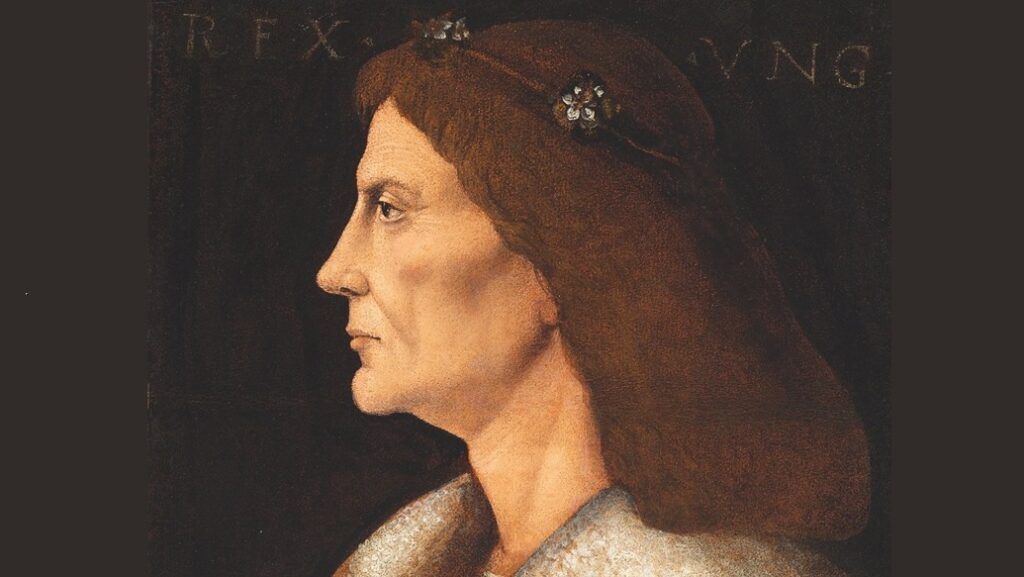‘If you look at Viktor Orbán, we don’t want to see wars, I don’t want to see wars,’ said former US President Donald Trump on the Timcast podcast. The Republican presidential candidate was asked about migration, the wars in Ukraine and Gaza, among other issues, and stated that during his presidency the US had not been involved in or started any conflicts, except the war against the Islamic State (ISIS), which was won.
‘I don’t want wars. I think it’s so horrible, so unnecessary, and so costly in terms of lives and money—in that order—and it destroys these countries,’ the former US president said.
Trump said that if he had been president at the time, the war in Ukraine and the October 7 attack on Israel would never have happened.
He called Orbán ‘a very powerful guy’
and quoted the Hungarian prime minister as saying ‘The problem with the world today is that Donald Trump is no longer president.’
The interview was also shared on X by Balázs Orbán, the political director of the Hungarian Prime Minister.
🗣️ @realDonaldTrump to @Timcast: @PM_ViktorOrban and I, ‘we don’t want to see wars’.
— Balázs Orbán (@BalazsOrban_HU) May 28, 2024
The former US President and the Hungarian PM are clearly two strong leaders on the side of #peace. pic.twitter.com/TSabpBH4JT
You can watch the full podcast here.
The fact that Trump mentioned Viktor Orbán in an interview is not at all surprising. The two politicians have a great relationship; in 2016, Orbán was the first European leader to endorse Trump. The latter also mentioned PM Orbán in several campaign speeches. Back in November 2023, in Iowa, for instance, Trump referred to the Hungarian prime minister as ‘the most respected, strongest leader in Europe.’
President Trump in Fort Dodge, Iowa
— Shannon Ford (@shannonfordUSA) November 19, 2023
They asked Viktor Orbán, what would you tell President Biden to do? He said he would tell Biden to leave office, and bring Trump back.
The world is a mess, our country's a mess.
We never had a time like when Biden surrendered in Afghanistan. pic.twitter.com/CJBZotuPqD
Viktor Orbán has also praised Donald Trump on several occasions in recent years. Last August, during an interview with the American right-wing opinion leader and former Fox host Tucker Carlson, he said: ‘Trump is the man who can save the Western world.’ In March, Orbán called Trump ‘the president of peace,’ after his visit at the former President’s residence in Mar-a-Lago, Florida.
Donald Trump’s first presidency was clearly focused on peace. The former Republican president’s tenure saw the historic Abraham Accords materialize, under which several Arab states recognized Israel’s right to exist—times have changed significantly in the Middle East since then. Trump is also credited with the agreement on the withdrawal of US forces from Afghanistan, which was then chaotically implemented by the Biden administration.
And today, there are no crowds of pro-peace leaders, either in Europe or overseas. At the very same time as Donald Trump’s statement, French President Emmanuel Macron said that France would allow Ukraine to strike Russian military bases on Russian territory with Western weapons. ‘We have to allow [Ukrainians] to neutralize the military sites from which the missiles are fired, but not other civilian or military targets. We’re not being escalatory by doing this,’ Macron said on Tuesday.
Meanwhile, compulsory conscription in Europe is also an increasingly popular topic among pro-war leaders. The idea was first mooted by Manfred Weber, leader of the European People’s Party (EPP), and is now reportedly being worked on by German Defence Minister Boris Pistorius—although German Chancellor Olaf Scholz has ordered the plan to remain under wraps until after the European elections in June.
These statements should always be interpreted in context and not taken at face value, and the context is currently the campaign drive for the crucial European elections. Nevertheless,
there is no doubt that the risk of escalation has increased significantly
in recent months, largely due to irresponsible statements by Western European leaders who are in a state of war psychosis. It is, therefore, of the utmost importance that the forthcoming European elections see pro-peace forces gain a majority in the European Parliament and the EU institutions.
In a recent interview with Blikk, PM Orbán said that the European elections will not simply be about the allocation of seats in the European Parliament, but also a national election everywhere, and that governments have a responsibility towards their own citizens. He assumed that after the elections, European leaders’ attitudes to the war will change noticeably because European politics, for all its weaknesses, is still fundamentally democratic and cannot go against the will of the people: prime ministers must adapt to public opinion. ‘I expect that there will be a European Parliament where there will be more pro-peace than pro-war members, and in the European Council—where the prime ministers sit—the balance of power will change: there will be more pro-peace and fewer pro-war members,’ he said.
Related articles:








